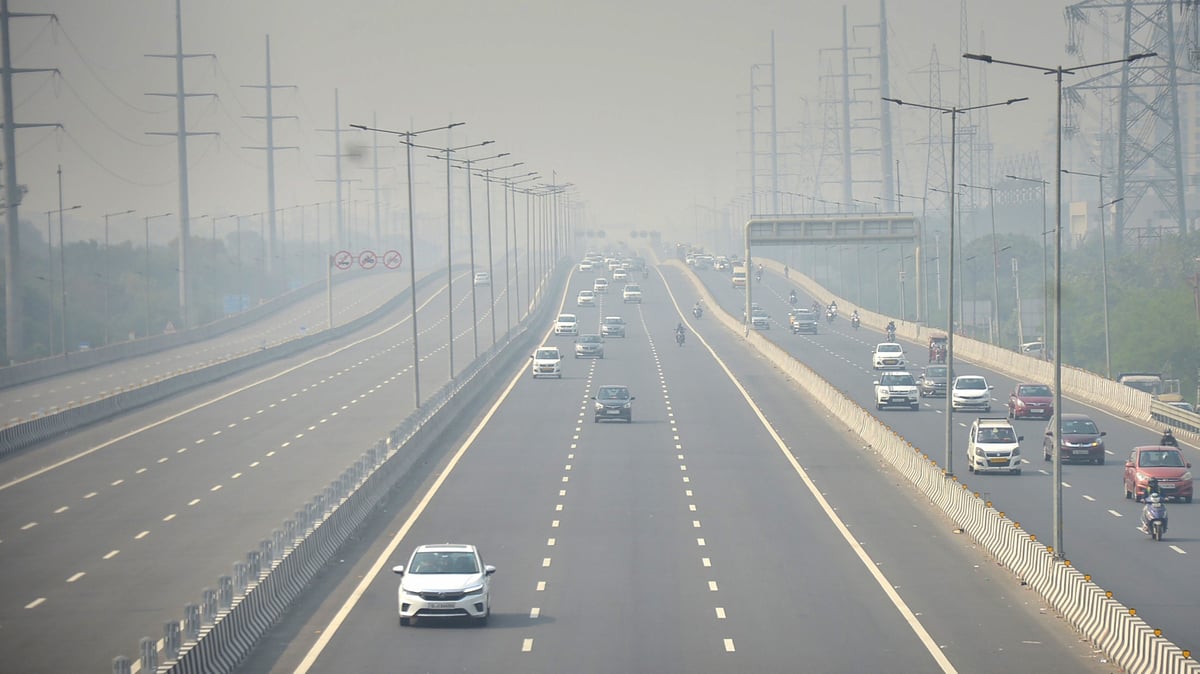Mumbai sees a rise in respiratory illnesses as cold weather and pollution levels worsen | Representational Image
Mumbai: As Mumbai experiences a dip in temperatures, hospitals across the city are witnessing a surge in respiratory ailments, exacerbated by high levels of air pollution. Doctors report an increase in patients suffering from dry cough, runny noses, low-grade fever, and breathlessness – symptoms that cut across all age groups.
Dr Swapnil Mehta, a pulmonologist at Dr L H Hiranand. Hospital, highlighted the concerning role of the city’s deteriorating Air Quality Index (AQI). “Mumbai has been experiencing spikes in AQI, frequently crossing the 200 mark, which is considered unhealthy, and sometimes breaching 300, classified as severe. Factors like vehicular emissions, construction dust, industrial pollutants, and weather conditions trapping pollutants closer to the ground are major contributors,” he said.
According to Dr Mehta, hospitals are seeing a rise in cases of aggravated asthma, chronic cough, shortness of breath, wheezing, and allergic rhinitis. “Common symptoms include irritation of the eyes, nose, and throat, along with a noticeable increase in respiratory infections,” he added. Children, the elderly, and people with pre-existing conditions like asthma, chronic obstructive pulmonary disease (COPD), and cardiovascular issues are particularly vulnerable to the effects of poor air quality.
Doctors have also reported a rise in viral respiratory infections, with influenza-like illnesses and acute respiratory infections (ARIs), including bronchitis, becoming increasingly common. Dr Mehta explained that pollutants weaken the respiratory system, making it more susceptible to viral infections.
The onset of winter, coupled with fluctuating temperatures, is creating an ideal environment for viruses and bacteria to thrive. Dr Pratit Samd., consultant physician at Jaslok Hospital, said, “The mornings are quite cold, and temperature fluctuations create perfect conditions for the growth of viruses and bacteria. Precautions are essential to keep upper respiratory tract problems at bay.”
Dr Lancelot Pinto, consultant pulmonologist and epidemiologist at PD Hinduja Hospital said, “The combination of low temperatures and high pollution triggers respiratory issues, especially for asthma patients. Overcrowding indoors during the holiday season further facilitates the spread of respiratory viruses.”
Pollution and smog
The interplay between cold weather and pollution intensifies respiratory problems. “During winter, the drop in night temperatures creates a blanket of cold air that traps pollutants like particulate matter and carbon monoxide in the lower atmosphere,” said Dr Pinto, adding, “This results in smog, which worsens conditions for those with asthma, bronchitis, and other respiratory disorders.”
Smog can cause or aggravate health issues such as emphysema, chronic bronchitis, respiratory infections, eye irritation, and reduced resistance to colds. Inhaling cold air can also constrict the throat and nasal passages, causing shortness of breath, sneezing, and nasal congestion.

